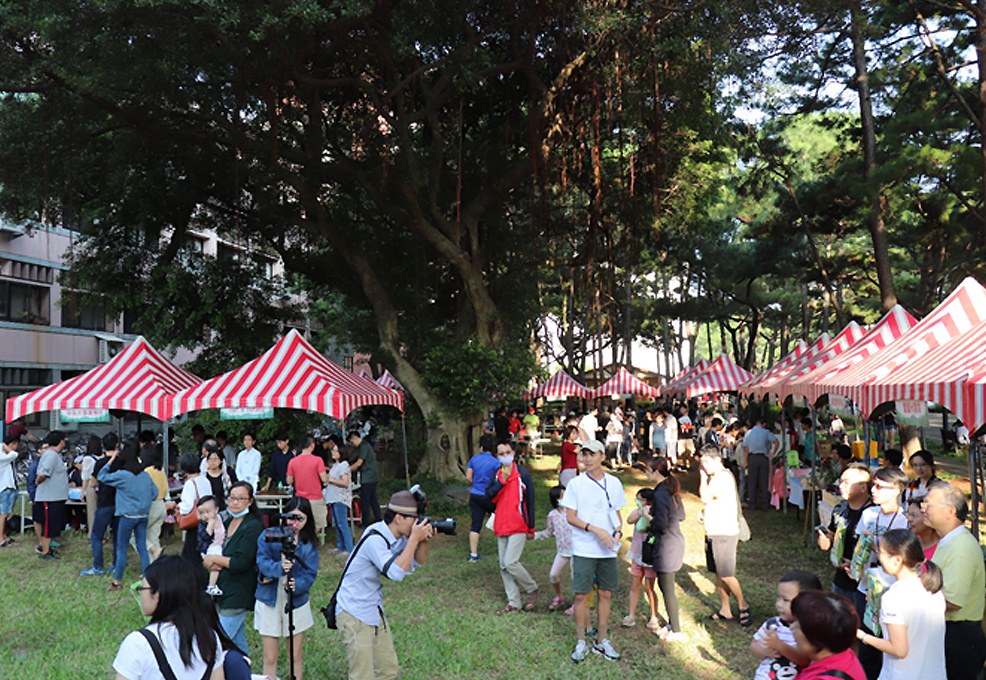The Characteristics of Members’ Backgrounds in the Shortlisted Teams of Taiwan Academic Startups

Author(s)
Shou-Cheng LaiBiography
Dr. Shou-Cheng Lai received his Ph.D. in Sociology from Lancaster University, UK and is currently an associate professor in the Department of Hakka Language and Social Sciences at National Central University (NCU) in Taoyuan, Taiwan.
Academy/University/Organization
National Central UniversitySource
Lai, Shou-Cheng. 2018. The Practice Process and Innovative Development of Cross-Disciplinary Social Practice Courses: A Study on “Social Engagement: An Introduction” Course. MOE 2018 “Teaching Practice Research” Subsidies Program.-
TAGS
-
Share this article
You are free to share this article under the Attribution 4.0 International license
- HUMANITIES & SOCIAL SCIENCES
- Text & Image
- June 01,2021
To address the problems of demographic and rural-urban disparities in Taiwan, the Regional Revitalization Policy was launched by the Executive Yuan in 2019. Meanwhile, under the auspices of the University Social Responsibility (USR) program, launched by the MOE in 2018, universities are encouraged to play a greater role in regional innovation and development. To bridge the gap between theoretical knowledge and practical application, a new wave of social practice courses is currently being implemented in Taiwan. Following this trend, a new series of courses on Interdisciplinary Social Engagement Program (SEP) was launched in September 2016 by NCU.
SEP courses are divided into three levels and co-taught by four faculty members. Team work is an integral part of SEP’s coursework. SEP introductory course introduces students to the field of social engagement; they learn how to identify local issues relating to an area of public concern; SEP deep-bowl and cross-disciplinary courses prepare students with higher level knowledge and skills related to the realization of SEP projects, and collaboratively develop their creative thinking and problem-solving ability in real-world contexts; SEP workshops and project presentation provide each student team with opportunities to give a formal presentation of their project’s status to various audiences and to share and receive feedback on their projects’ progress and performance. Through stages of team working, the First Student Teams Projects of SEP receiving seven grants were diverse in terms of topics (over 1 million NT dollars were allocated in total), and most of these projects are successfully related to different aspects of the local development of Taoyuan.
Social practice courses as a creative curriculum strategy for bridging regional revitalization and the USR program
To address the problems of demographic and rural-urban disparities in Taiwan, the Regional Revitalization Policy was launched by the Executive Yuan in 2019 with the aim of developing regional industry in line with regional characteristics, and of achieving the goal of “Balanced development throughout Taiwan.” Nevertheless, the disparities in social development have been a societal concern for many years in Taiwan, and a number of public efforts have been made to counter this trend. A major one is the University Social Responsibility (USR) program. Under the auspices of the USR program, launched by the Ministry of Education (MOE) in 2018, higher education institutions are encouraged to take up and fulfill their responsibilities to society and to play a greater role in regional innovation and development by cultivating talent and serving as think tanks for local communities.
Meanwhile, the frontline of higher education is going through dramatic transformations, both locally and globally. No longer are universities able to train graduates to address all of the current and emerging challenges using a singular disciplinary approach. It is increasingly recognized that the future of learning is multidisciplinary or interdisciplinary; the new wave of campus culture is trying to break down departmental boundaries and encourage students and other relevant stakeholders to collaborate and work together across disciplines. To bridge the gap between theoretical knowledge and practical application, a new wave of social practice courses is being implemented in Taiwan. These social practice courses emphasize forging and maintaining connections between universities and their local societies, bringing students to engage in practical study within actual social communities, working with people in local communities, and promoting humanistic values and civic engagement. Following this trend, a new series of courses on the “Interdisciplinary Social Engagement Program” (SEP) was launched in September 2016 by NCU under the framework of general education.
The practical experience of NCU’s Interdisciplinary Social Engagement Program
SEP consists of 17 credits and can be completed in 6 semesters. The program’s interdisciplinary courses are divided into three levels and are co-taught by four full-time faculty members from different areas of expertise. Team work is an integral part of SEP’s coursework, which is structured to give students a strong sense of team working and to help prepare them for their learning careers in SEP. SEP introductory course introduces students to the field of social engagement, and to learn how to identify local issues relating to an area of public concern; SEP deep-bowl and cross-disciplinary courses prepare students with higher level knowledge and skills related to the realization of SEP projects, and they collaboratively develop their creative thinking and problem-solving ability in real-world contexts; SEP workshops and project presentations provide each student team with opportunities to give a formal presentation of their project’s status to various audiences, and to share and receive feedback on their project progress and performance. Furthermore, to supportively connect and coordinate the major part of NCU’s USR project, the planning of the SEP thematic topics and field sites is focused on areas covered by the lead project—Cultivating a sustainable coastal environment and developing a prosperous local community through the integration of Ecology, Living, and Economy for Taoyuan county.
Through stages of team building, proposal writing, project application, project implementation, and project result presentation, the First Student Teams Projects of SEP receiving seven grants are diverse in terms of their topics (over 1 million NT dollars were allocated in total). Most of these projects are related to different aspects of the local development of Taoyuan, ranging from setting up farmers’ markets on university campus (Fun Young Pine Team), coloring the Hakka dyes of Taoyuan (Natural Fun), making a community newspaper in Taoyuan Xinwu District (Cultivating Xinwu News), designing a sustainable ecological tourism model in Taoyuan Youngxing community (New Youngxing Catalyst), promoting popular sciences and design makers inside and outside the university (Si Lia Zhong), building online platforms that integrate game development with career exploration (Practices Community), to researching the quality of life for people living with paralysis in Taoyuan (Innogration). All of these projects were documented and published in a special edition of SEP project results in May 2019 to archive and celebrate the outstanding achievements of NCU’s first SEP program.
STAY CONNECTED. SUBSCRIBE TO OUR NEWSLETTER.
Add your information below to receive daily updates.




